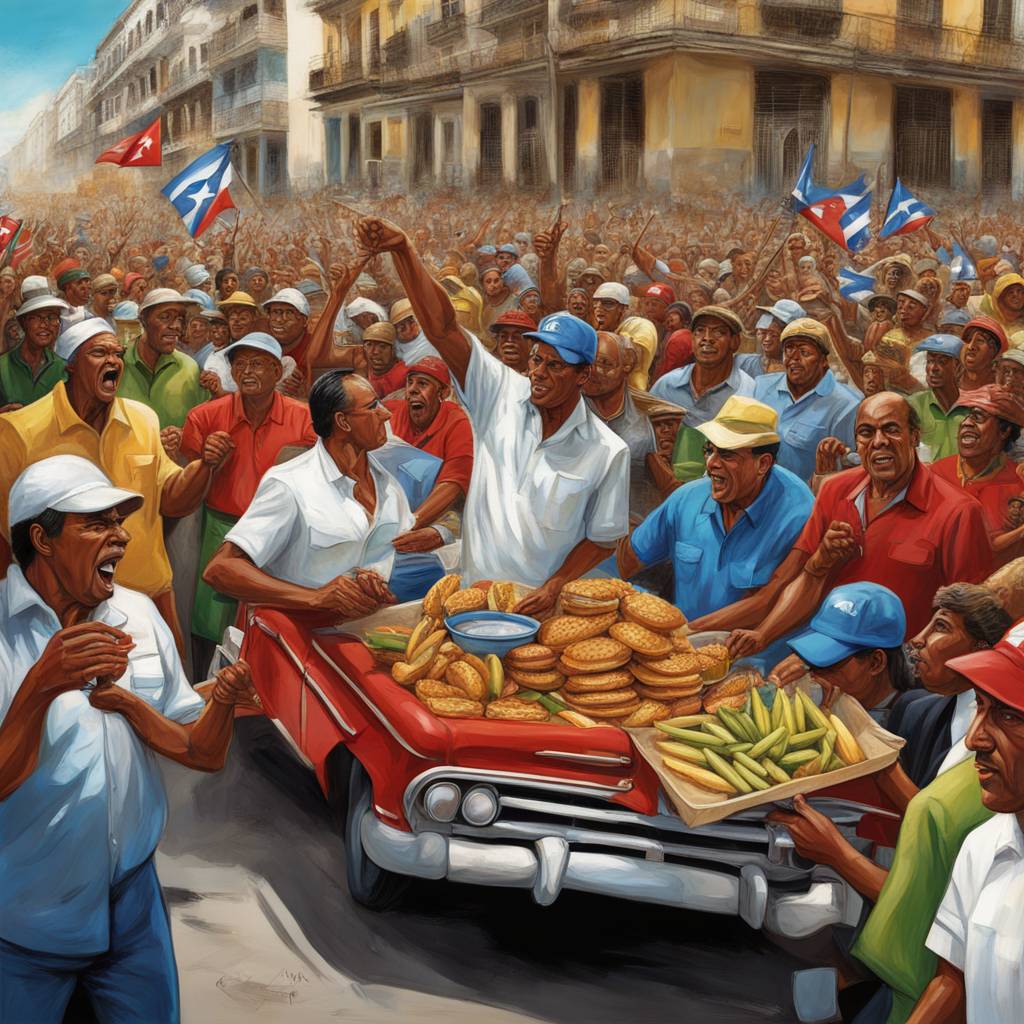In recent days, Cuba has seen a surge in protests as the country grapples with food shortages and nearly full-day blackouts. Hundreds of demonstrators have taken to the streets to voice their frustrations with the government’s handling of the crisis. The protests come as the country continues to struggle with economic challenges and a lack of basic necessities for its citizens.
The recent unrest in Cuba has been fueled by a growing sense of frustration among the population over the worsening living conditions in the country. Many Cubans are struggling to access basic necessities such as food and electricity, leading to widespread discontent with the government’s handling of the situation. The protests have brought attention to the challenges facing the country and have sparked a debate over the future of Cuba’s political and economic systems.
The Cuban government has responded to the protests by cracking down on demonstrators and arresting those who participate in the unrest. The government has accused the protesters of being funded and supported by foreign powers seeking to destabilize the country. Cuban officials have also attempted to downplay the severity of the situation, claiming that the protests are a small and isolated occurrence rather than a widespread movement.
Despite the government’s attempts to suppress the protests, they have continued to grow in size and intensity in recent days. The demonstrators are demanding action from the government to address the country’s economic challenges and improve living conditions for the Cuban people. The protests have highlighted the deep-seated frustrations and grievances that many Cubans have with the current state of affairs in the country.
The international community has also taken notice of the situation in Cuba, with many countries and organizations expressing concern over the government’s response to the protests. The United Nations has called for restraint from the Cuban authorities and urged them to respect the rights of the demonstrators to peaceful protest. The protests in Cuba have become a focal point for discussions about human rights and democratic freedoms in the country.
As the protests in Cuba continue to escalate, the future of the country remains uncertain. The government’s response to the demonstrations and the demands of the protesters will likely have a significant impact on the direction that Cuba takes in the coming years. The protests have reignited discussions about the need for political and economic reform in the country and have sparked a debate about the future of Cuba’s socialist system.



